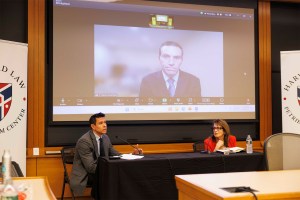Science & Tech
-

Harsh past might bare its teeth
Early adversity leads to higher aggression and fearfulness in adult canines, study says

-

What will AI mean for humanity?
Scholars from range of disciplines see red flags, possibilities ahead
-

‘Human exceptionalism is at the root of the ecological crisis’
Saving the planet requires getting over ourselves, argues author of ‘The Arrogant Ape’
-
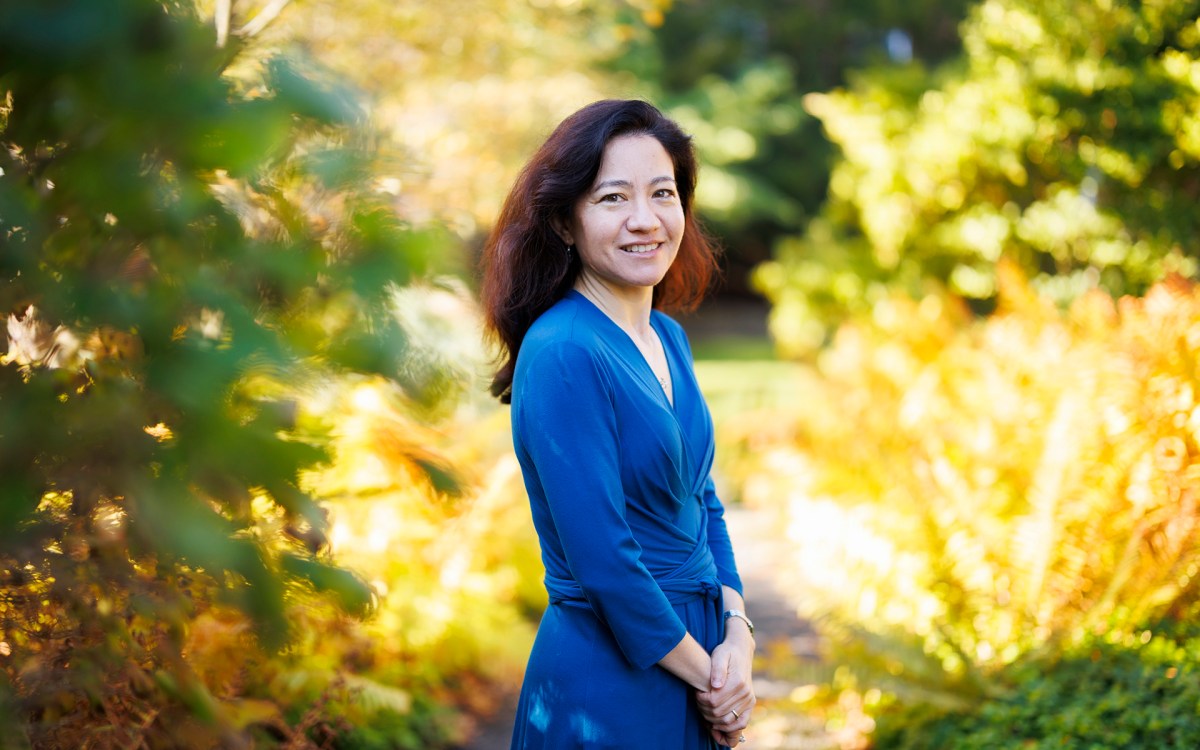
Lauren Williams awarded MacArthur ‘genius grant’
Math professor honored for theoretical breakthroughs with sometimes surprising applications across phenomena such as tsunamis, traffic
-
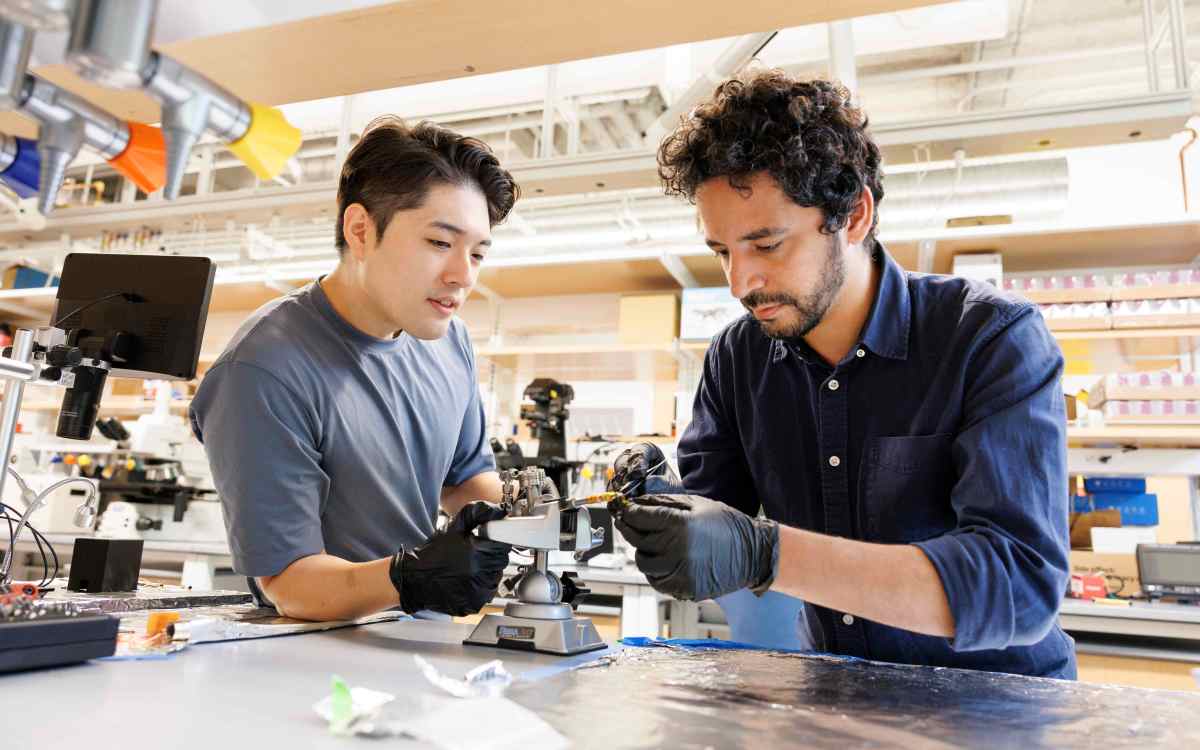
-
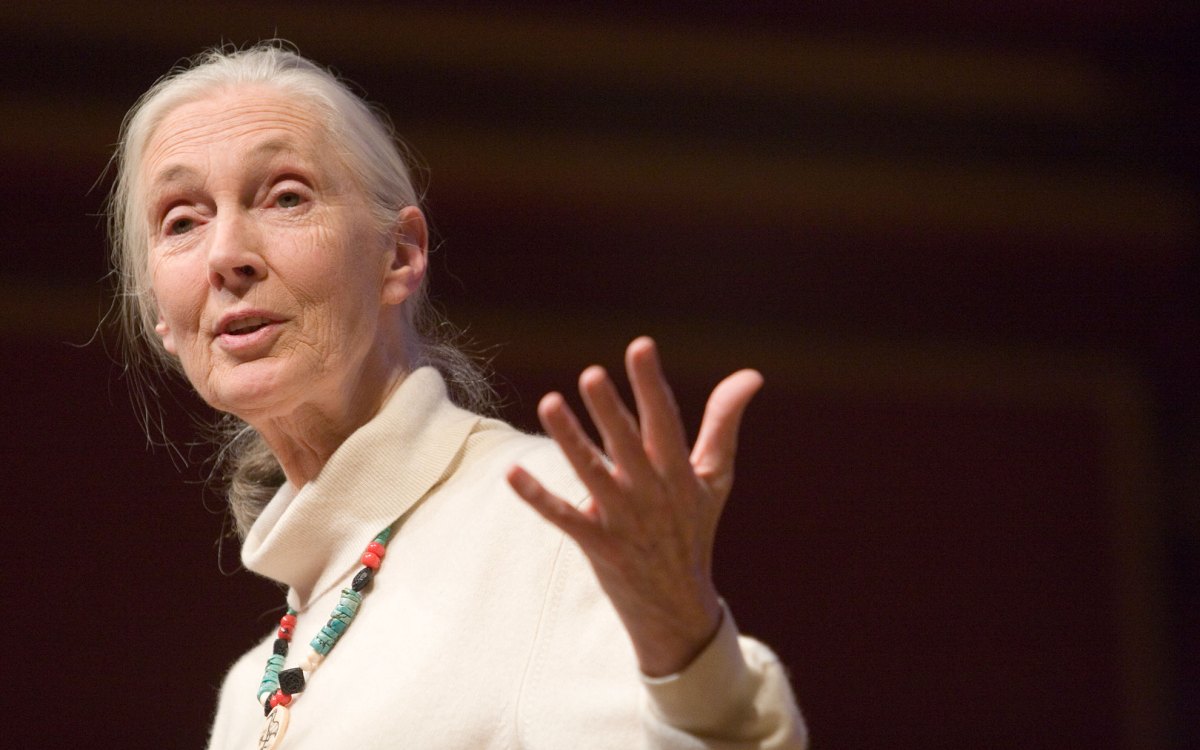
‘She had a sense of caring for everybody that she encountered.’
Richard Wrangham remembers his teacher and colleague Jane Goodall as a force of science, empathy, and hope
-
A leap for ‘artificial leaf’
Using an electro-chemical process to etch materials, Harvard scientists have developed a system of patterning that works in just minutes, as opposed to the weeks needed for other techniques. Researchers can build photonic structures that control the light hitting the device and greatly increase its efficiency.

-
Going the distance with microlensing method
NASA’s Spitzer Space Telescope has teamed up with a telescope on the ground to find a remote gas planet about 13,000 light-years away, making it one of the most distant planets known, according to the Harvard-Smithsonian Center for Astrophysics.

-
Sizing up climate change
Experts on energy, the environment, and climate change gathered at Harvard University’s Sanders Theatre Monday to discuss how governments and universities can help meet the challenge.
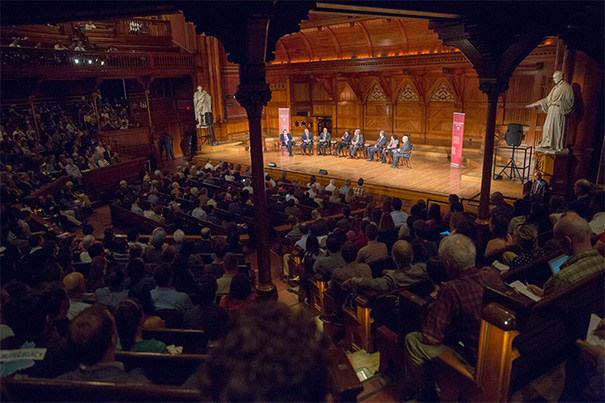
-
Making sustainability part of the business
Unilever CEO Paul Polman outlined the multinational corporation’s commitment to environmental sustainability during a talk at Harvard Business School’s Spangler Center on April 10 as part of Climate Week events at Harvard.

-
Bullish on clean energy
Physicist Amory Lovins outlined a path to a clean-energy future in the United States during a talk at the Kennedy School.
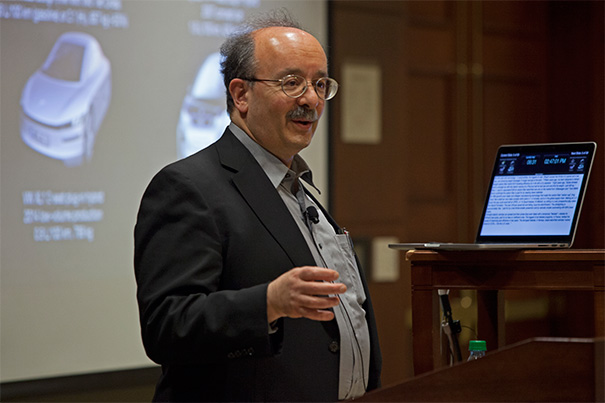
-
A focus on food
The Harvard Food Law Society and the Food Literacy Project hosted the “Just Food? Forum on Justice in the Food System” at Harvard Law School (HLS).
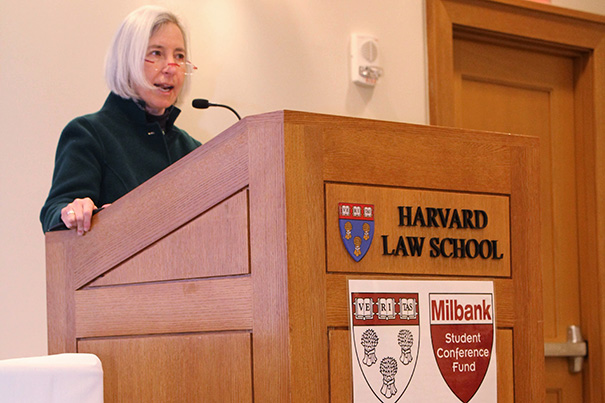
-
Reunion and reassessment
Generations of concentrators in Environmental Science and Public Policy returned to Harvard for the first reunion involving the more than 20-year-old concentration.
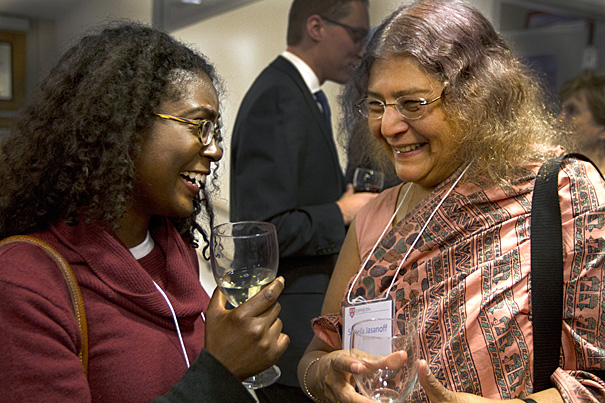
-
Let’s talk climate change
The Harvard University Center for the Environment is sponsoring Climate Week, featuring breakfasts with scientists working on the problems along with a variety of climate-centered activities, from talks by prominent scientists to poetry readings to informal gatherings.
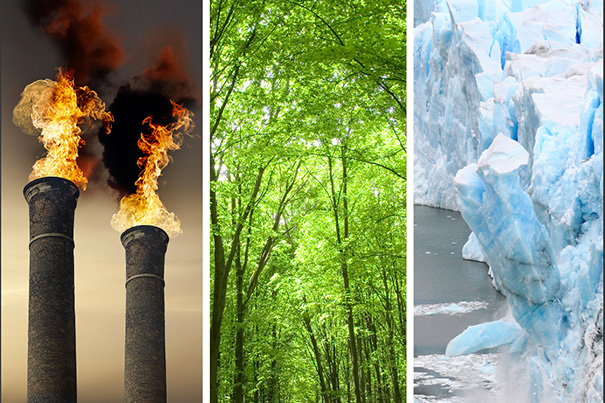
-
When flames attack
Harvard researchers were able to predict when test flames in the lab were likely to switch from slow- to fast-moving fires, which could open the way to making similar predictions for forest fires.
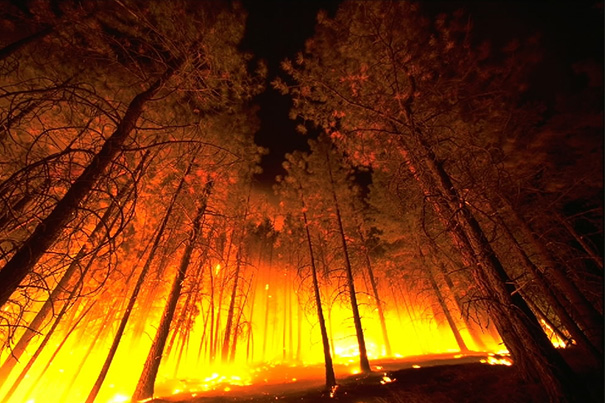
-
Seeking public openness
Four teams that took part in a hackathon at the MIT Media Lab last weekend will go on to present their practical solutions for reducing institutional corruption to a conference at Harvard Law School in May.

-
Science in the mix(er)
“Science and Cooking” was the topic of a HarvardX lecture offered at the new Harvard Ed Portal in Allston.
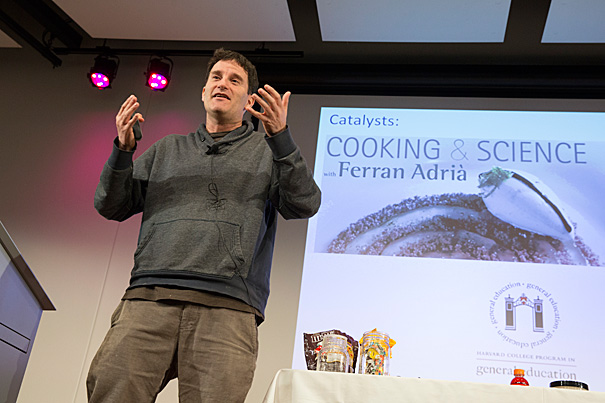
-
A quantum leap for women
Step by step, a growing Harvard women’s student group is helping to change the male-dominated culture of computer science by creating fresh realities.

-
Where science meets creationism
Professor David Montgomery’s most recent book explores an unexpected crossroads: the intersection of geology and the Bible.
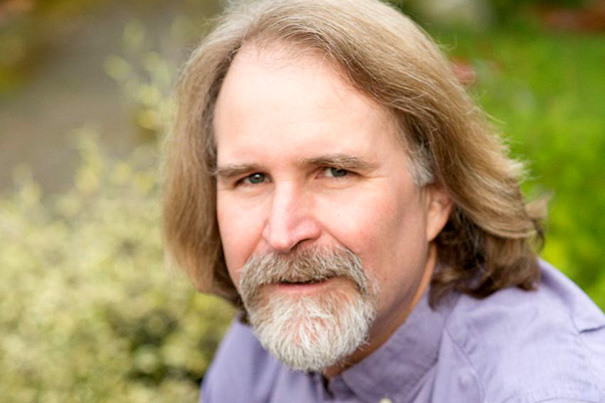
-
Understanding common knowledge
A new study examines how different kinds of shared beliefs can affect how people cooperate, and how people use common knowledge, a type of shared understanding, to coordinate their actions.

-
Keys to a split-second slime attack
Researchers from the Harvard School of Engineering and Applied Sciences and from universities in Chile, Costa Rica, and Brazil have been studying the secret power of the velvet worm.

-
Colleges have ‘special’ role in fighting climate change
Harvard President Drew Faust tells an audience at Tsinghua University in Beijing that universities have a unique and critical role to play in combatting climate change.

-
Greener delivery?
The Gazette asked Henry Lee, an authority on electric cars and the Jassim M. Jaidah Family Director of the Environment and Natural Resources Program at the Belfer Center, about the opportunity for the Postal Service to improve its environmental footprint — and perhaps spark broader automotive changes — through a more fuel-efficient replacement for the current model, which gets roughly 9 miles per gallon.

-
Sculptor finds physics a welcoming space
Sculptor Kim Bernard, known for her spinning, swaying, bouncing, moving creations, is artist-in-residence in the Physics Department.

-
Staying power for shale gas
The shale gas boom, which has transformed domestic and global energy markets, is still in its infancy, according to the chair of Harvard’s Department of Earth and Planetary Sciences.

-
Focus on food
Twenty-two faculty members presented seven-minute lightning lectures on research and realities involving food.

-
Stages of design
Three exhibits at the Harvard Graduate School of Design’s Gund Hall represent different facets of how design learning gets done.

-
Climate engineering: In from the cold
Harvard Professor David Keith says that two new reports by the National Academy of Sciences are likely to boost a deeper look at possible geoengineering options for climate engineering.
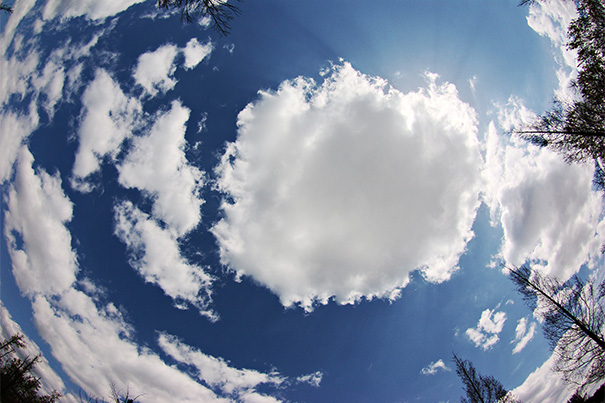
-
Playing the ‘envelope game’
Harvard researchers have developed a first-of-its-kind model, dubbed the “envelope game,” that can help researchers to understand not only why humans evolved to be cooperative but why people evolved to cooperate in a principled way.
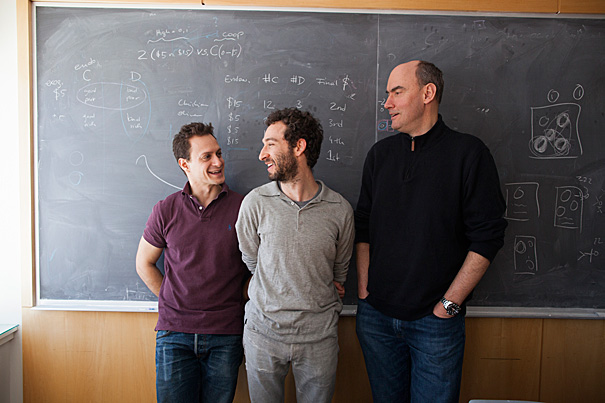
-
Mysterious link between galaxy and black hole
A new study of football-shaped collections of stars called elliptical galaxies provides insights into the connection between a galaxy and its black hole. This new research was designed to address a controversy in the field.

-
Less corporate, more mindful
Harvard Law School grad and former Pixar CFO Lawrence Levy was on campus to talk about leaving corporate life to promote the benefits of meditation with his nonprofit Juniper Foundation.

-
Discovering ‘star nurseries’
In a quest to find mismatched star pairs known as extreme mass-ratio binaries, Harvard astronomers have discovered a new class of binary stars, in which one star is fully formed while the other is still in its infancy. The discovery of these stellar twins could provide invaluable insight into the formation and evolution of massive stars, close binaries, and star nurseries.
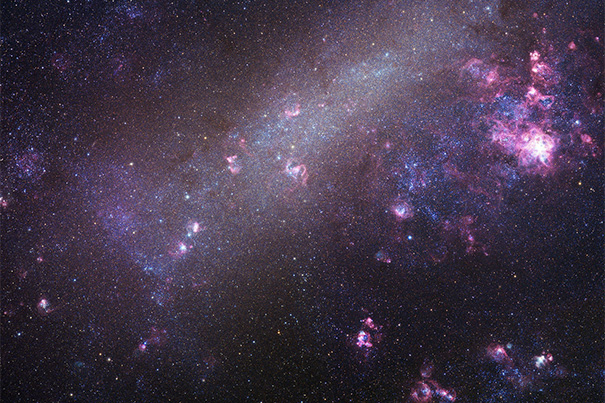
-
An exchange in ideas and culture
Harvard and Brazilian students spent 10 days visiting sustainability-related sites around São Paulo as part of a field course sponsored by Harvard’s School of Engineering and Applied Sciences, the David Rockefeller Center for Latin American Studies, and the University of São Paulo.

-
Support for seven from president’s climate fund
Seven research projects aimed at confronting the challenge of climate change using the levers of law, policy, and economics, as well as public health and science, have been awarded grants in the inaugural year of President Drew Faust’s Climate Change Solutions Fund.
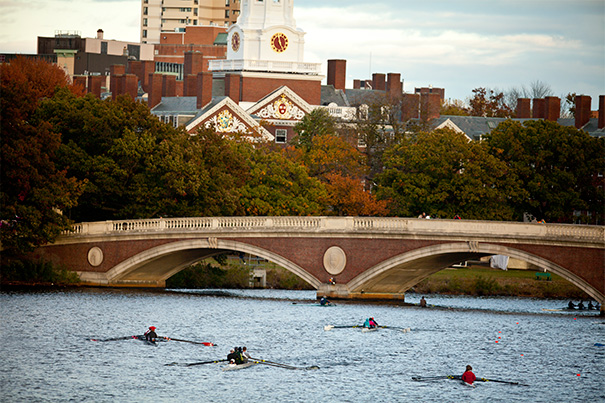
-
Taking to the woods
For a handful of Harvard undergraduate and graduate students, the January semester break included a rare treat — a visit to the Harvard Forest in Petersham, Mass.

-
A trap for greenhouse gas
A team of researchers has developed a novel class of materials that enable a safer, cheaper, and more energy-efficient process for removing greenhouse gas from power-plant emissions.



